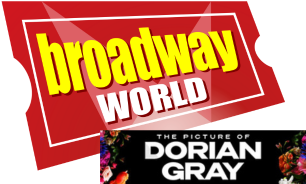Interview: Evan Jonigkeit Takes Flight in THE SNOW GEESE
Evan Jonigkeit, who plays favorite older son Duncan Gaesling in The Snow Geese, sees his character as a product of his Gilded Age end-times. The story is set in the Gaeslings' hunting lodge outside Syracuse in 1917, as the U.S. enters World War I.
The family is gathered for its annual snow geese shooting party, which is a typically festive occasion. But not this time.
The family patriarch Theodore (Christopher Innvar) has recently died of a heart attack, and his widow, Elizabeth (Mary-Louise Parker), handles her bereavement with laudanum, dispensed by her doctor brother-in-law Max (the always excellent Danny Burstein), whose Germanic lineage has made him a pariah bereft of patients.
Duncan, who's been in elite boarding and prep schools for most of his youth, has returned for the celebration, which is shadowed by his impending deployment in France. His younger brother, Arnie (Brian Cross), meanwhile, has uncovered financial mismanagement of the family's finances: they are essentially bankrupt. The Gaeslings' upper-class run is at an end.
Elizabeth, resolutely in denial, prefers the light-hearted antics of Duncan to the dour realism of Arnie, who tries desperately to warn of the family's impending slide down the social ladder.
"Duncan has been shielded from the family," Jonigkeit said. "He's been set up to live outside the family dynamic and do well as a player among the elitists." The more pragmatic Arnie is a realist who is frustrated by his family's blind eye to the truth.
"Duncan is a type of narcissist, and he does everything possible to earn his mother's love, devotion and confidence. The family has constantly put pressure on Duncan to sustain a way of life they've all been used to," Jonigkeit said.
"As Duncan, I try to make things easier for my mother, unlike Arnie. Extroverted Duncan is emotional and seemingly light-hearted, more inclined to party than to take life seriously, at least on the surface.
"I think everyone can relate to this family dynamic and how the family structure works," he added. Duncan, who has a contentious but ultimately loving relationship with his brother, is a multilayered character who can be dangerously unpredictable.
"It's never vicious or ugly, but it is a love/hate relationship that a lot of siblings in their teens or early 20s can relate to," he said.
"The shooting party in that day and age was a really exciting event, a celebration and a tradition" Jonigkeit said. "It was a way for the family to come together and mark the occasion. My family gets together every year to eat crabs," he said with a laugh.
Jonigkeit sees Duncan as an optimist in all manner of things. "I actually think Duncan wants to appease everyone, not just his mother," he said. "At this point in the war everyone knows the risks." And for the same reason he doesn't want to face going off to war, he doesn't want to know about the money.
"He tries to keep the reality of his deployment light and festive," Jonigkeit said. "He's very good at making upbeat conversation, although at times he does say ugly things."
Jonigkeit sees Duncan as the great appeaser and peacekeeper in this 20th century drama. "He's kind of like a bartender, making sure everyone has a good time," he said. "He's less interested in serious issues because he's never had the inclination to worry, aside from his father's death."
There are several themes threaded throughout the story, particularly that of the relationship between the haves and have-nots, he said. "Sharr" - playwright Sharr White - "liked to talk about the Gilded Age and how that applies here. I'm heading off to war, we lost our money, there's been a death in the family - any one of these could be the main theme. But more than anything, the relationships are what matter most."
The Snow Geese is playing through Dec. 15 at the Manhattan Theatre Club at the Samuel J. Friedman Theatre, 261 West 47th Street.


